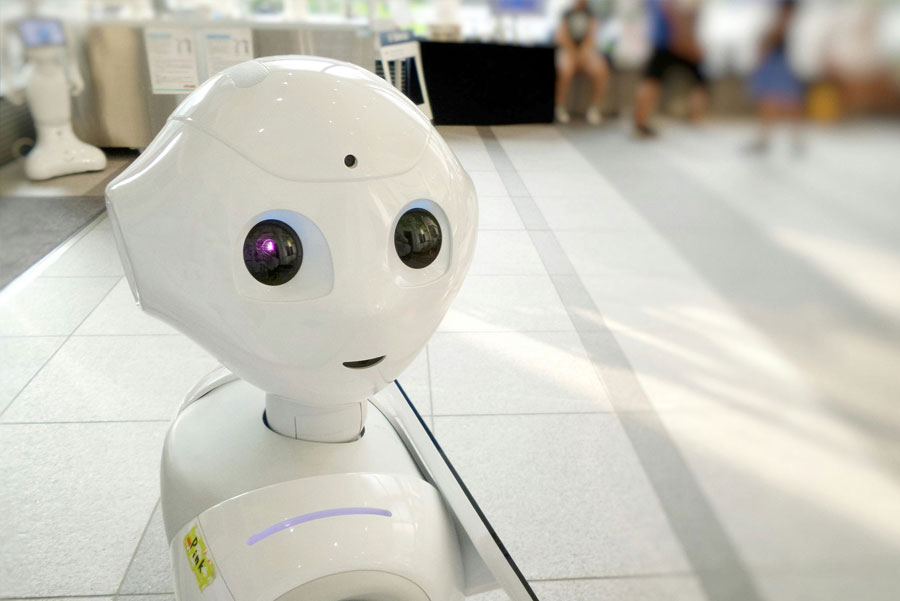Artificial Intelligence (AI) is no longer just a futuristic concept; it has cemented its role as a cornerstone in the evolving landscape of marketing. As we advance into a new era, AI’s influence across various sectors has been profound, but perhaps nowhere is its impact more noticeable than in the world of marketing. This technology is reshaping strategies, enhancing personalization, optimizing spending, and reinventing customer interactions. Here, we explore how AI is changing the marketing world, turning traditional practices on their head and setting new standards for engagement and effectiveness.
Personalization at Its Peak
One of the most significant advantages of AI in marketing is its ability to personalize at an unprecedented scale. Through machine learning algorithms and data analysis, AI systems can predict consumer behavior, understand individual preferences, and deliver content that is highly relevant to each user. This is not just about recommending products based on past purchases; AI can analyze browsing habits, social media interactions, and even real-time behavior to tailor marketing messages precisely. This level of personalization enhances the customer experience and significantly boosts conversion rates.
Chatbots and Customer Service
AI-powered chatbots have transformed customer service, providing 24/7 interaction points that were previously unthinkable. These bots can handle a multitude of customer queries without human intervention, from solving simple product-related questions to managing complex transactions. The immediacy and efficiency of AI chatbots not only improve customer satisfaction but also free up human resources to tackle more strategic tasks, thereby increasing overall productivity.
Enhanced Content Generation
AI is also making its mark in content creation. AI-powered tools can now draft basic content, generate creative ideas, or even suggest edits to improve the readability and engagement of written material. This capability enables marketers to produce high-quality content faster, meeting the demands of content-driven marketing strategies like blogging, email newsletters, and social media posts.
Predictive Analytics
Predictive analytics is another area where AI shines, allowing marketers to foresee future trends and consumer behaviors. By analyzing historical data and identifying patterns, AI tools can predict what customers are likely to buy in the future and which marketing strategies will yield the best results. This predictive power helps marketers be more proactive, crafting campaigns that are not only responsive but also anticipatory.
Programmatic Advertising
AI has revolutionized advertising through programmatic buying, where AI systems automatically purchase ad space based on specific criteria such as audience behavior or demographic data. This method makes ad placements more efficient and results-driven, maximizing return on investment. The automation of these processes also means that campaigns can be scaled quickly and adjusted in real-time based on performance data.
Streamlined Marketing Operations
The operational efficiency of marketing departments has greatly improved thanks to AI. Tasks that traditionally took hours, such as segmenting markets, can now be completed in minutes. AI’s ability to automate repetitive tasks frees marketers to focus on more creative and strategic pursuits, thus optimizing both manpower and creativity.
Challenges and Ethical Considerations
While AI in marketing offers numerous benefits, it also presents challenges, particularly ethical ones. Issues around data privacy, the potential for bias in AI algorithms, and the impact of automation on employment are significant concerns. Marketers must navigate these issues carefully, ensuring that AI use respects consumer privacy and is both transparent and equitable.
The Future of AI in Marketing
Looking ahead, AI is set to become even more integrated into marketing strategies. As technology advances, we can expect AI to handle increasingly complex tasks, offering even more precise personalization and efficiency. The evolution of AI will likely introduce new tools that will further blur the lines between technology and human capabilities in crafting compelling marketing narratives and strategies.
Conclusion
AI is not just altering specific aspects of marketing; it is redefining the entire discipline. From how we understand and interact with customers to the way we create and disseminate content, AI’s role is integral and expanding. For marketers, staying updated with AI developments and learning how to leverage its capabilities will be crucial in navigating the future landscape. As we continue to harness the power of AI, the potential for creating more engaging, effective, and efficient marketing strategies is boundless, promising a new era of marketing driven by intelligence and insight.






